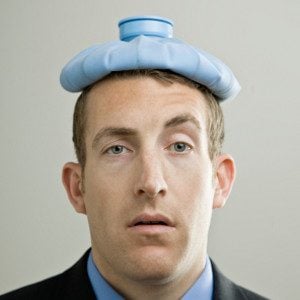Finding Relief for Migraines
For the estimated 10% of the population who suffer from migraines, there is good news. A growing body of research suggests that certain supplements may be as effective as-or even superior to-conventional medicine in the prevention and treatment of these debilitating headaches.

What is a Migraine?
A migraine is a severe, throbbing headache that usually begins on one side of the head (hence the name “migraine”-from the Greek hemikrania, or “half the skull”), but may affect the whole head. Attacks can last for hours or days and may be preceded by warning signs.
What Can Cause Migraines?
The precise underlying cause of migraines is unknown. The prevailing theory is that they are sparked by spasms in the arteries that supply blood to the brain. Some researchers believe a low level of the brain chemical serotonin is the reason the blood vessels constrict and widen abnormally.
A variety of triggers can precipitate an attack in those susceptible to migraines. These initiators include certain foods, stress, lack of sleep, changes in the weather, bright light, fluctuations in blood sugar levels, liver problems, dental pain, hormonal swings that occur with the menstrual cycle or the use of birth control pills, environmental chemicals, and exposure to cigarette smoke. Migraines run in families, and women are more susceptible than men.
How supplements can help
The recommended supplements are useful in preventing migraines and may be used in place of prescription drugs. (Don’t stop taking them, however, without your doctor’s approval.) You’ll probably still need prescription medication to combat a migraine headache that has already begun.
|
Magnesium/Calcium |
Dosage: 400 mg magnesium and 100 mg calcium twice a day. Comments: Take with food; sometimes sold in a single supplement. |
|
Feverfew |
Dosage: 250 mg every morning. Comments: Standardized to contain at least 0.4% parthenolide. |
|
5-HTP |
Dosage: 100 mg 3 times a day. Comments: Consult doctor if taking a prescription antidepressant. |
|
Riboflavin |
Dosage: 400 mg every morning. Comments: Best used for chronic migraines. Also called vitamin B2. |
|
Vitamin C |
Dosage: 1,000 mg 3 times a day. Comments: Reduce dose if diarrhea develops. |
|
Pantothenic acid |
Dosage: 400 mg twice a day. Comments: Take with meals. |
Everyone who gets migraines should take magnesium and calcium long term. These minerals help maintain healthy blood vessels, and low levels of magnesium are common in people who have migraines.
In addition, two natural remedies are beneficial in preventing some migraines. Widely used in Europe and approved by health authorities in Canada, the herb feverfew can reduce the intensity and frequency of migraines when taken over several months. Or try 5-HTP (5-hydroxytryptophan), a form of the amino acid tryptophan and a basic building block of serotonin. Some studies show it can prevent migraines as effectively as drugs-with only minor side effects, primarily nausea. The side effects tend to disappear in about two weeks. But several months of therapy may be needed to derive the maximum benefit.
If your migraines are ongoing, the B vitamin riboflavin may reduce the number of times they occur more effectively than feverfew or 5-HTP. At high doses, riboflavin seems to increase energy reserves in brain cells. If none of these work, consider adding vitamin C and pantothenic acid. Both boost the production of hormones that assist the body in dealing with the adverse effects of stress; pantothenic acid is also important for serotonin production.
Complementary and Alternative Therapies
- Identify and eliminate your migraine triggers.
- Try biofeedback or relaxation training to help you cope with stress.
- Drink at least 48 ounces of water a day and exercise regularly.



